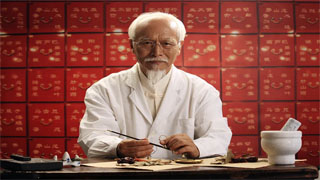
Frequent urination, urgency, frequent nighttime urination, constantly running to the bathroom at night, always making oneself completely drowsy, and feeling listless the next day.
The kidney controls water and controls the bladder. If the kidney yang is deficient, there is no way to start a fire. If the kidney yang is insufficient, it can lead to lower burner deficiency and cold, and the ability to evaporate and gasify water is weak.
Poor gasification, loss of kidney sealing, inability to restrict the bladder, and frequent nocturia due to bladder incontinence.
Therefore, the treatment of frequent urination should focus on warming the lower body to promote dampness and eliminate turbidity.
Today, I would like to introduce to you a prescription that is good at warming the kidneys, promoting diuresis, and distinguishing turbidity - Bixie Fen San, which comes from Yang Tan's "Yang Family Tibetan Formula" in the Southern Song Dynasty.
There are only four simple traditional Chinese medicines in the formula, namely Dioscorea opposita, Acorus calamus, Yizhi Ren, and Wu Yao, which cost three coins (9g) per dose.
First of all, let's take a look at Dioscorea opposita. It has a sweet and bitter taste, a calm nature, and enters the liver, kidney, and stomach meridians. It has a good effect on improving numbness, cloudy urine, and damp heat in some people.
In traditional Chinese medicine, the problem of urination is collectively referred to as "Lin syndrome". If the lower burner is damp heat and causes difficulty urinating, it is called "Hot Lin";
If there is blood in the urine, it is called hemolymph;
If it is a urinary tract stone, it is called a stone shower;
If the urine is cloudy, it is called ointment.
And Bixie is an essential medicine for treating ointment and gonorrhea, with the ability to clear dampness and eliminate turbidity.
Let's take a look at this Acorus calamus again. It has a mild nature, a spicy and bitter taste, and can play a role in clearing impurities and opening up the orifices, promoting qi and eliminating phlegm, and detoxifying.
In traditional Chinese medicine, bitterness is good for dryness and dampness, and warmth can dispel coldness, which can assist in the transformation of dampness and turbidity and the elimination of bladder deficiency and coldness.
Yizhi Ren is a spicy and warm medicinal herb that enters the spleen and kidney meridians. It can have the effects of warming the spleen, stimulating appetite, warming the kidneys, consolidating essence, and reducing urine.
For some people with memory decline, kidney qi decline, and frequent nocturia, it can have a good improvement effect.
Wu Yao is also a spicy and warm medicinal herb that enters the lung meridian, the spleen meridian, and the kidney and bladder meridians.
It can play a role in promoting qi circulation, dispelling cold, warming the kidneys, relieving pain, and treating the stagnation of qi caused by the three jiao cold. It has a good effect on improving the frequency of urination and enuresis in some people due to insufficient kidney yang and bladder deficiency cold.
The combination of the above four medicinal herbs can not only warm the kidneys and promote yang, but also solidify essence and reduce urine, keeping you away from the trouble of getting up at night.
This is a concise and effective method, which must be dialectical based on one's own actual situation before use. After all, there is no constant formula and no constant quantity.
Kind reminder: Everyone's physical condition is different, and the formulas provided in this article should be adjusted according to the preferences of enthusiasts. It is recommended to seek guidance from a professional doctor.


